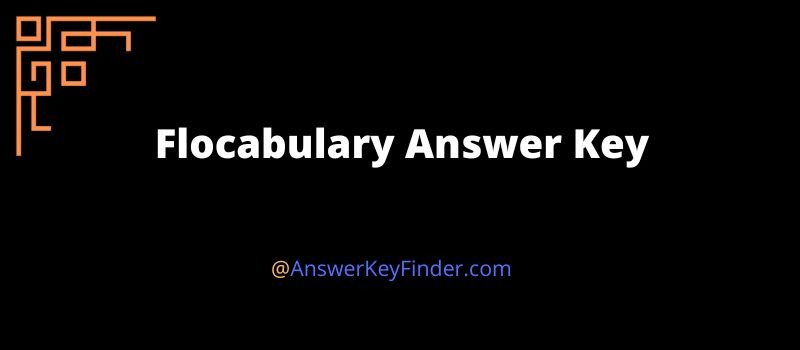Flocabulary Quiz: This innovative assessment tool is transforming how students learn and educators teach. From elementary classrooms to higher education, Flocabulary quizzes are rapidly gaining popularity for their engaging format and ability to effectively assess knowledge retention across various subjects. This report delves into the widespread use, structure, effectiveness, accessibility, and future potential of Flocabulary quizzes in the ever-evolving landscape of educational technology.
This analysis explores the diverse question types employed, ranging from multiple-choice to fill-in-the-blank, and examines how these quizzes cater to different learning styles. We will also investigate the integration of Flocabulary quizzes with other educational platforms and explore their potential to personalize learning experiences for improved student outcomes. The research presented aims to provide a comprehensive overview of this impactful educational tool.
Flocabulary Quiz: A Comprehensive Overview
Flocabulary quizzes have become a popular tool in educational settings, offering an engaging and interactive way to assess student understanding. This article examines the popularity, content, effectiveness, accessibility, and future potential of these quizzes, providing insights into their role in modern education.
Flocabulary Quiz Popularity and Usage
Flocabulary quizzes enjoy widespread use across various age groups and educational settings. Elementary, middle, and high school teachers frequently incorporate them into their lesson plans, leveraging the platform’s diverse subject matter and engaging format. Homeschooling families also utilize Flocabulary quizzes as a supplementary learning tool, appreciating the convenience and accessibility they offer. While precise usage data is proprietary to Flocabulary, anecdotal evidence and observations from educational forums suggest a significant and growing adoption rate, particularly among educators seeking innovative assessment methods.
Compared to traditional methods, Flocabulary quizzes offer immediate feedback, personalized learning paths, and data-driven insights into student performance, potentially leading to improved learning outcomes. Subject matter usage appears fairly distributed, with strong representation across history, science, math, and English language arts.
Flocabulary Quiz Content and Structure

Source: answerkeyfinder.com
Flocabulary quizzes offer a dynamic way to test knowledge retention, particularly useful for students reviewing complex subjects. For those seeking supplementary learning materials after completing a quiz, consider checking local resources like craigslist hawaii hilo for used textbooks or educational materials. Returning to Flocabulary, remember to utilize the quiz’s feedback mechanisms to improve understanding and prepare for future assessments.
Flocabulary quizzes employ a variety of question types to assess different learning styles and cognitive skills. These include multiple-choice, fill-in-the-blank, true/false, and sometimes even short-answer questions. The difficulty level varies depending on the grade level and subject matter. The pedagogical approach emphasizes active recall and application of knowledge, moving beyond simple memorization. Questions often require students to analyze information, synthesize concepts, and evaluate arguments.
For example, a quiz on the American Revolution might include questions ranging from identifying key figures to analyzing the causes and consequences of the war. A sample quiz on the French Revolution is presented below:
| Question | Answer |
|---|---|
| Which event is considered the start of the French Revolution? | The Storming of the Bastille |
| Who was the leader of the Reign of Terror? | Maximilien Robespierre |
| What was the name of the governing body during the French Revolution? | The National Convention |
| True or False: The French Revolution led to the establishment of a monarchy. | False |
| Fill in the blank: The French Revolution’s slogan was “Liberty, Equality, ______.” | Fraternity |
Effectiveness of Flocabulary Quizzes in Learning
While comprehensive, peer-reviewed research on the overall effectiveness of Flocabulary quizzes is limited, anecdotal evidence from educators suggests positive impacts on student understanding and engagement. The interactive nature and immediate feedback mechanisms of the quizzes contribute to improved knowledge retention. However, the effectiveness is likely influenced by factors such as the quality of instruction, student engagement, and the integration of the quizzes within a broader learning plan.
A controlled study comparing Flocabulary quizzes to traditional methods would be needed to provide definitive conclusions. Such a study could involve randomly assigning students to different assessment groups and measuring their learning outcomes using standardized tests and qualitative data gathering methods.
Accessibility and Inclusivity of Flocabulary Quizzes
Flocabulary strives to make its quizzes accessible to all learners. While specific accessibility features may vary, many quizzes offer options for text-to-speech, adjustable font sizes, and alternative question formats. The platform’s multimedia approach, incorporating music and visuals, caters to diverse learning styles. However, further improvements could include more robust support for students with significant visual or auditory impairments, and greater customization options to accommodate diverse learning needs.
Adapting Flocabulary quizzes for visually impaired students could involve:
- Providing detailed audio descriptions of any visual elements.
- Offering alternative text descriptions for images and graphics.
- Using screen reader compatible formats for quiz content.
- Employing tactile materials (where feasible) for interactive elements.
- Collaborating with assistive technology specialists to optimize quiz accessibility.
Future of Flocabulary Quizzes and Educational Technology
The future of Flocabulary quizzes likely involves deeper integration with other educational technologies, such as learning management systems (LMS) and personalized learning platforms. Artificial intelligence could be leveraged to create adaptive quizzes that adjust to individual student needs and learning paces. The incorporation of gamification elements and virtual reality experiences could further enhance engagement and learning outcomes. As educational technology continues to evolve, Flocabulary quizzes will need to adapt to emerging trends, such as the increased use of mobile devices and personalized learning pathways, to remain a relevant and effective tool in the educational landscape.
Conclusive Thoughts
Flocabulary quizzes represent a significant advancement in educational assessment, offering a dynamic and engaging alternative to traditional methods. Their adaptability, accessibility features, and potential for integration with other educational technologies promise to further enhance their effectiveness in fostering student understanding and knowledge retention. As educational technology continues to evolve, Flocabulary quizzes are poised to play an increasingly important role in shaping the future of learning.
